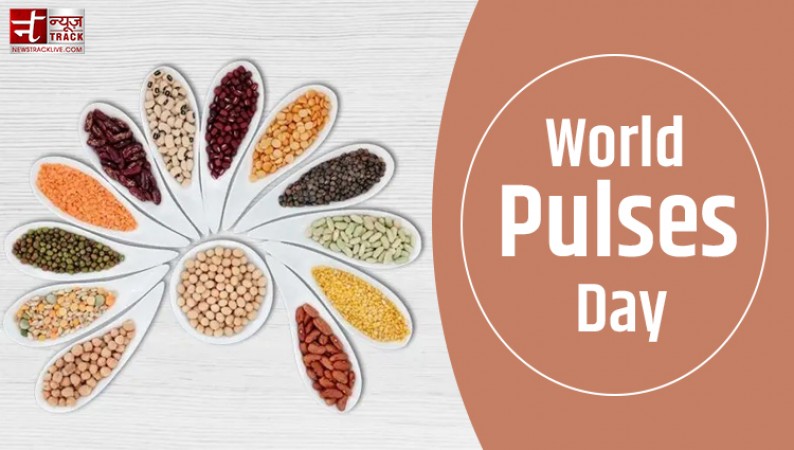
World Pulses Day observes annually on February 10. It is a yearly universal event designated by the United Nations in 2018 to recognize the implication and nutritional benefits of pulses (also known as “legumes”). Beyond that, the United Nation believes that pulses are not only nutritional, they can also contribute to the development of sustainable food systems towards eradicating world hunger and poverty. According to the U.N., this is an effective strategy for achieving its 2030 Agenda for Sustainable Development, which aims at strengthening global peace and enhancing food security.
The theme for this year 2023, "Pulses for a Sustainable Future," emphasises how pulses, which are the edible seeds of leguminous plants like beans, lentils, peas, and chickpeas, are strengthening farming systems and enhancing people's quality of life because of their low water use, ability to withstand drought, and resistance to climate-related disasters.
What is History of World Pulses Day?: Pulses, commonly referred to as legumes, are the edible seeds of plant species that produce pods, including dry peas, dry beans, lupins, lentils, and chickpeas. Although pulses come in a vast range of forms, variations, sizes, and hues and are used in many different cuisines, dry beans, peas, and lentils are the most widely consumed. By definition, pulses only include dried seeds from leguminous plants grown for food and do not include green vegetable crops that were harvested. Their seeds are significant and healthy superfoods because they are packed with vital elements including fibre, protein, vitamins, and minerals.
On December 20, 2013, the General Assembly of the United Nations passed a special resolution designating 2016 as the International Year of Pulses to recognise the importance of these nutrient-rich food crops (I.Y.P.). The United Nations' Food and Agriculture Organization (F.A.O.) organised the festival in 2016, and it was a success in raising public awareness of the health and environmental advantages of pulses.
World Pulses Day was proposed by Burkina Faso, a landlocked country in West Africa, building on the success and momentum of the I.Y.P. and realising the potential of pulses to further accomplish the 2030 Agenda for Sustainable Development. The United Nations General Assembly declared February 10 as World Pulses Day through a resolution on December 20, 2018, and the day has been observed as a global event since 2019 with support from several member countries. Pulses continue to play a significant role in reducing the worldwide concerns of hunger, food security, poor nutrition, human health, and soil health, according to the United Nation.
National Deworming Day 2023: Know the history, Significance and more